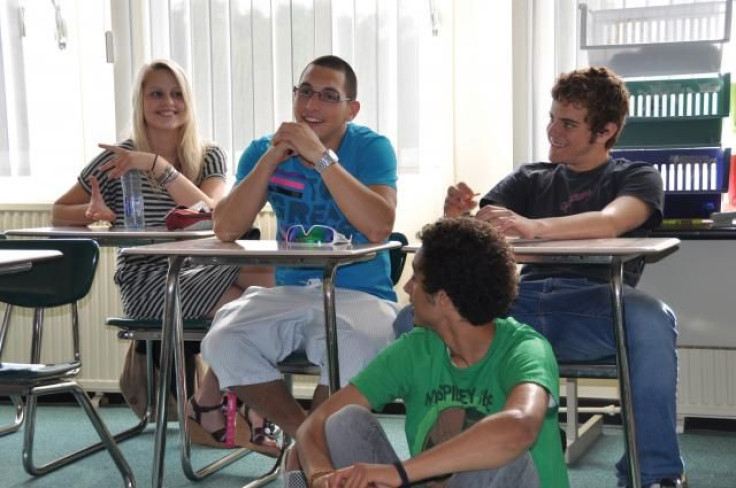Military Kids More Likely To Drink, Smoke Pot, Study Finds

American teenagers and adolescents with a parent deployed in the military are more likely to get drunk or use drugs, according to a new study.
In the United States, more than a million kids had a parent deployed in the military services in 2010, researchers with the University of Iowa at Iowa City reported in the online journal Addiction.
With funding from the federal government, Stephan Arndt and his colleagues analyzed survey data from students in Iowa in 2010, comparing 1,700 children with a deployed parent with 57,000 from non-military families. Researchers focused on a snapshot of sixth, eighth and eleventh graders at that time.
Among sixth graders with a deployed parent, 12 percent had tried alcohol and 7 percent had engaged in binge drinking, downing five or more drinks in one sitting, compared to 4 percent and 2 percent of the other kids. Twenty-nine percent of 11th graders with a deployed parent had drank in the past month while 15 percent had smoked pot, compared to 22 percent and 10 percent of non-military kids. Moreover, prescription drug misuse was twice as high among military kids at 15 percent to 7 percent.
"What was sort of surprising to me was that I had expected those effects for high school [students] but we saw it in sixth graders too," said Arndt.
Kids from that demographic in particular -- straddling the line between military and non-military life -- might be most susceptible to behavioral problems stemming from stressful life changes, said Dr. Timothy Shope, a pediatrician at Children's Hospital of Pittsburgh who was not involved in the study. "This research just adds further to the mounting evidence that there are negative mental health effects on children associated with parental military deployment."
Previous studies have shown a higher rate of depression and more suicidal thoughts among children of parents experiencing multiple deployments, though no other studies have examined drug and alcohol use among military dependents, according to Dr. Timothy Roberts, an adolescent medicine specialist at Naval Medical Center San Diego, who was also not part of the study. However, the federal government is presently funding several long-term studies on exactly that subject, he said.
The researchers speculated that while children living on military bases might be privy to a greater institutionalized social support system, depends of parents in the Guard and Reserves lack such resources.
"I think community service agencies, military service agencies and schools should put something in place that adds [social] support," Arndt said.



























